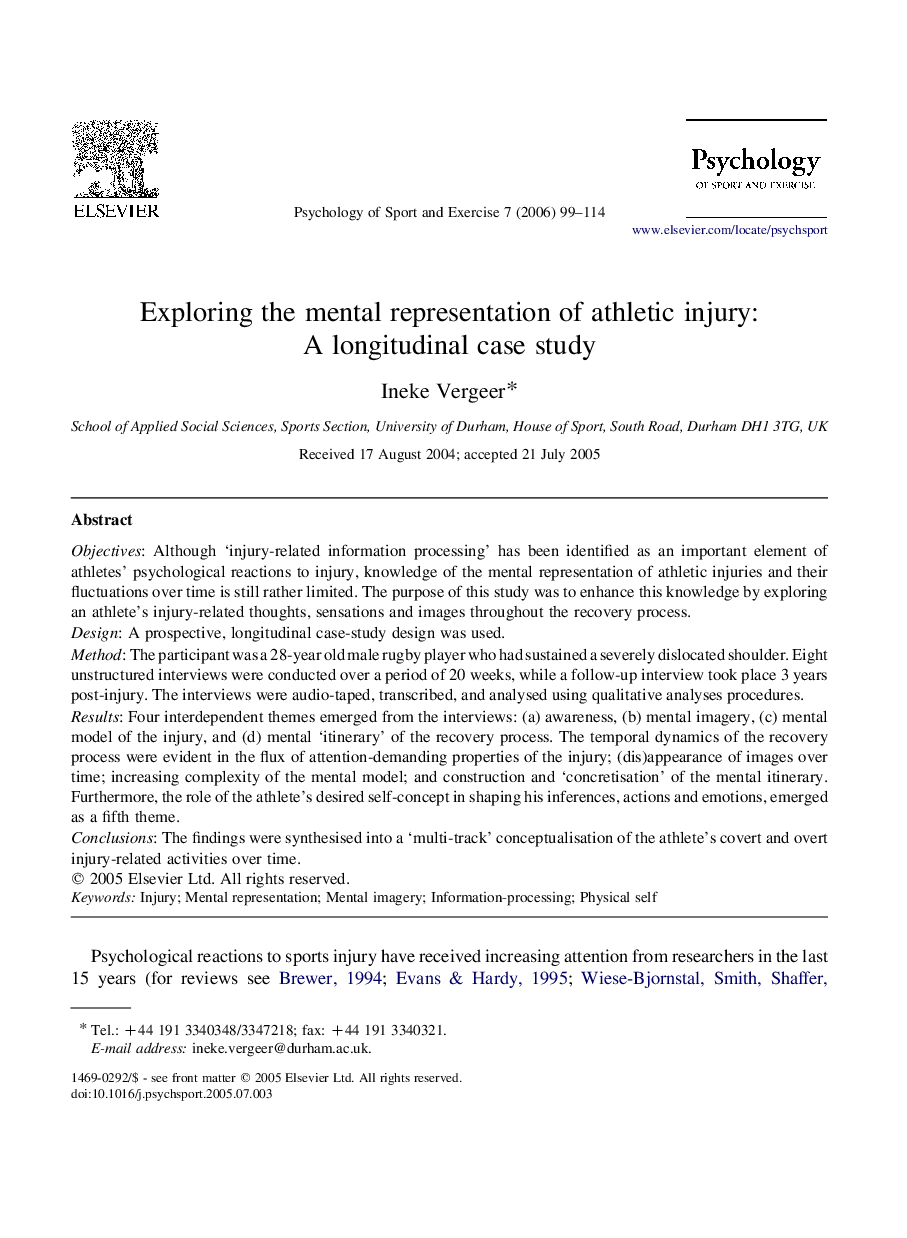| Article ID | Journal | Published Year | Pages | File Type |
|---|---|---|---|---|
| 895009 | Psychology of Sport and Exercise | 2006 | 16 Pages |
ObjectivesAlthough ‘injury-related information processing’ has been identified as an important element of athletes' psychological reactions to injury, knowledge of the mental representation of athletic injuries and their fluctuations over time is still rather limited. The purpose of this study was to enhance this knowledge by exploring an athlete's injury-related thoughts, sensations and images throughout the recovery process.DesignA prospective, longitudinal case-study design was used.MethodThe participant was a 28-year old male rugby player who had sustained a severely dislocated shoulder. Eight unstructured interviews were conducted over a period of 20 weeks, while a follow-up interview took place 3 years post-injury. The interviews were audio-taped, transcribed, and analysed using qualitative analyses procedures.ResultsFour interdependent themes emerged from the interviews: (a) awareness, (b) mental imagery, (c) mental model of the injury, and (d) mental ‘itinerary’ of the recovery process. The temporal dynamics of the recovery process were evident in the flux of attention-demanding properties of the injury; (dis)appearance of images over time; increasing complexity of the mental model; and construction and ‘concretisation’ of the mental itinerary. Furthermore, the role of the athlete's desired self-concept in shaping his inferences, actions and emotions, emerged as a fifth theme.ConclusionsThe findings were synthesised into a ‘multi-track’ conceptualisation of the athlete's covert and overt injury-related activities over time.
